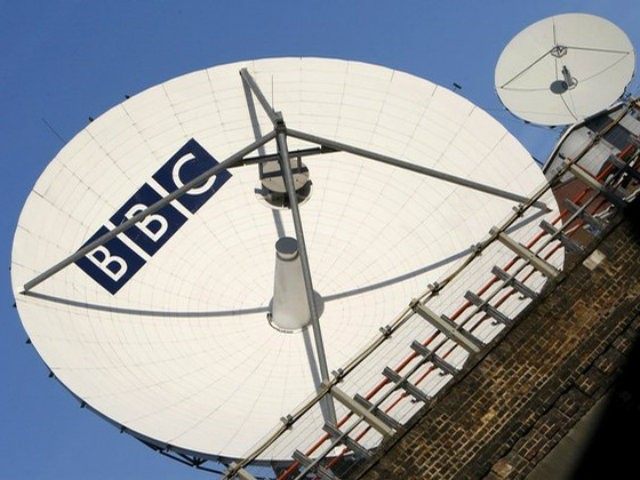How was it for you? You know – the great life-enhancing experience, yesterday’s celebration of everything we stand for – BBC Democracy Day? First, one small caveat: the expression should not be read as implying the intrusion of democracy into the BBC. No, indeed, that would be unhelpful and prejudicial to Corporation executives’ salaries.
And if, worse still, it meant the Great Unwashed, the helots who pay the licence fee, demanding that the Corporation in some way reflect their views, that could only lead to a distasteful diffusion of prejudice, xenophobia and all the other coarse passions to which the common people are prone.
So, yesterday’s BBC Democracy Day was about something quite different. It was a celebration of the liberties and parliamentary representation we enjoy in Britain, a model democracy – that is to say, a “democracy” as modelled by the BBC. For the Corporation has been a zealous propagandist for all the new freedoms we have attained in recent decades.
Among these are the freedom to have our culture enriched by millions of foreigners we would not otherwise have encountered and to express carefully worded appreciation of all minority groups, as well as liberation from the burden of governing ourselves since that tiresome chore has been undertaken on our behalf by kindly people in Brussels.
The BBC has found a new national treasure. Forget Winston Churchill and other over-hyped heroes. Instead, give a big hand, please, to Simon de Montfort, 5th Earl of Leicester who, 750 years ago yesterday, gifted us with that priceless institution the House of Commons. In the BBC narrative, De Montfort was Nelson Mandela in chain mail.
De Montfort was a Frenchman on the make who married the King’s sister, lined his pockets lavishly and ruled England as a dictator, while cosmetically introducing some burghers into his packed parliament, which he had no constitutional right to summon. A Frenchman running England; a political career that brought huge wealth; a pretence of democracy, masking dictatorship… What’s not to like, in the BBC/EU worldview?
Was this not the perfect template for the expenses-hoovering, voter-despising, lying, crony-ridden House of Commons we know today? Beyond that, was this French dictatorship not also a precursor of the European Union? Any version of “democracy” peddled by the BBC, the most viscerally anti-libertarian institution in this country, invites sceptical rejection. “BBC Democracy Day” is not technically an oxymoron, because it is more than two words, but you take the point.
Democracy Day was a disorienting experience for those of us who remember when All Fools’ Day used to fall on 1 April. There is no disaster, apart from occasional Acts of God, that has afflicted this country that did not have its origins in the House of Commons. All the ills from which we suffer today – mass immigration, terrorism, economic hardship, corruption, lost freedom of speech, punitive taxation, moral degeneracy, cultural collapse, inadequate defence and global insignificance – were initiated and imposed by the scoundrels on the slime-green benches.
Nor is this a new departure. The House of Commons ended a centuries-old and effective welfare system by rubber-stamping the Dissolution of the Monasteries and leading the land grab that followed, turning the poor into a desperate criminal class that disrupted life in England even into Dickensian times.
In their lust for power and wealth, the Commons murdered one King, created a dictatorship under Cromwell and later deposed another monarch. Their principal preoccupation was passing private Acts to enclose common land. Bribery was MPs’ traditional currency. If we are to draw any lasting message from the BBC’s ludicrous apotheosis of a mediaeval baron it is that the thieves’ kitchen on the Thames has endured for 750 years too many.
The past 24 hours have afforded a surreal experience, as the political class has caricatured itself. Hearken to the words of ex-prime minister Sir John Major (“Oh, yes!”), another national treasure, who presided over Black Wednesday (cost to Britain £3.3bn, profit to George Soros £1bn). Major thinks Britain is becoming a “more European” country and that UKIP does not represent the view of the majority.
“There has always been a minority of the population who emotionally regard themselves as being British but not European,” quoth the grey man. “But this feeling fades with each generation.” Really, John? At the 1975 EU referendum 67 per cent voted to stay in, 32 per cent to leave. In a recent opinion poll, considered unusually favourable by Europhiles, voting intentions in a putative new referendum were 42 per cent to stay in, 36 per cent to leave. So, how does that square with Major’s claim that British identity fades with each generation?
Anyone who imagines Britain’s vital interests are safe in the hands of the political and media establishment is sadly deluded. The question is: how much longer can this misrule be tolerated?

COMMENTS
Please let us know if you're having issues with commenting.